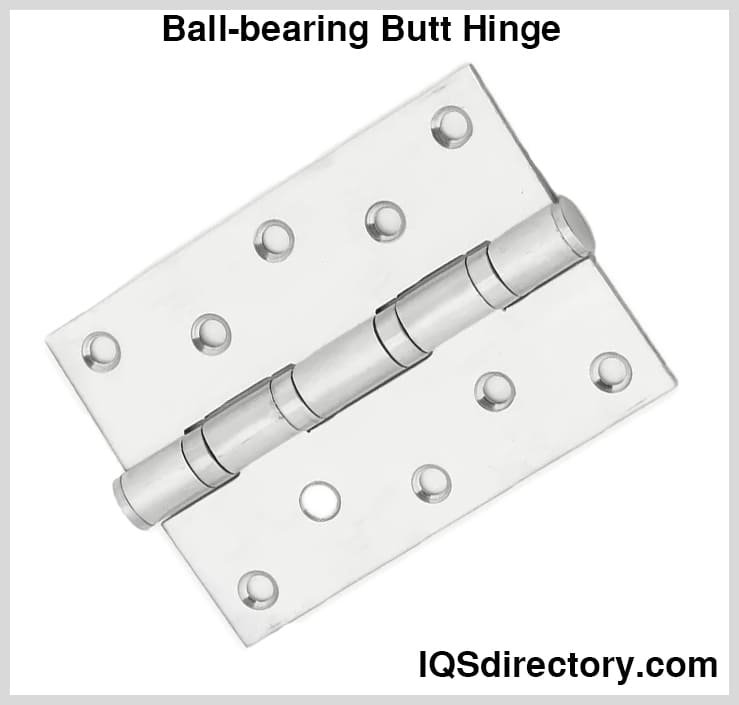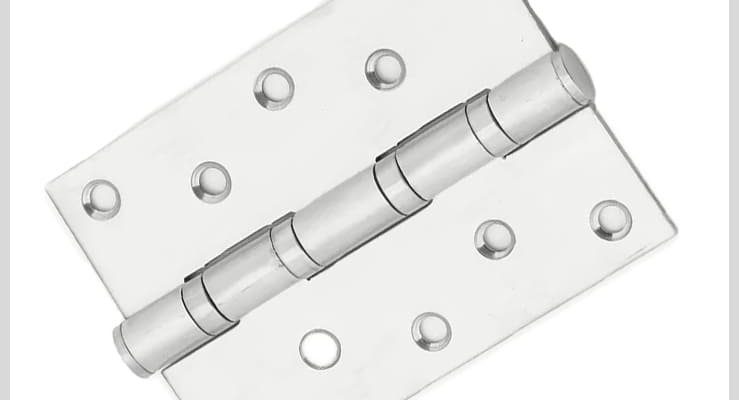
If you’re looking to maintain or upgrade your hinges, understanding the best lubricants for these different types is crucial. Ball bearing hinges, which are often used on heavier doors or in commercial settings, have unique needs compared to their simpler, standard counterparts. Let’s dive into the nuts and bolts of hinge lubricants and see what works best for each type.
Understanding Ball Bearing Hinges
Ball bearing hinges are designed for durability and smooth operation. They consist of a series of small balls that sit between the hinge knuckles, allowing for a much smoother movement. This design is particularly useful for heavy doors or high-traffic areas where wear and tear can be significant.
The benefit of using ball bearing hinges is that they handle weight better than standard hinges. Imagine riding a bike with ball bearings in the wheels; it rolls effortlessly. Similarly, a door with ball bearing hinges glides open and shut with minimal resistance. This feature is especially important in places like office buildings or commercial spaces, where constant use is the norm.
However, keeping these hinges lubricated is essential for maintaining their performance. The wrong type of lubricant can gum up the works, leading to stiffness and noise. So, what should you use?
Choosing the Right Lubricants for Ball Bearing Hinges
When selecting a lubricant for ball bearing hinges, you’ll want to prioritize products designed for high-performance applications. Here are some popular options:
- Silicone Spray: Silicone-based lubricants offer excellent penetration and help repel water, preventing rust.
- Graphite Powder: This is a favorite among many professionals. It’s dry, meaning it won’t attract dirt or dust.
- Lithium Grease: Good for heavier doors, lithium grease provides long-lasting lubrication, but make sure to use it sparingly.
Each of these lubricants offers distinct advantages. For instance, if you live in a damp area, silicone spray will help keep moisture away from the hinge. But if you’re often in environments filled with dust, graphite powder might be the way to go since it won’t trap debris.
Understanding Standard Hinges
Standard hinges are the most common type you’ll find in homes. They consist of two plates connected by a pin, allowing for basic swinging movement. You’ll typically see standard hinges on cabinet doors, interior doors, and sometimes even on lightweight exterior doors.
While they might seem simpler, standard hinges can still benefit greatly from regular lubrication. Think of them like a bicycle without bearings. They might get you moving, but there’s a lot more friction, and you’ll notice it over time. A well-lubricated standard hinge can help your door operate quietly and prevent squeaky sounds that can be annoying.
Best Lubricants for Standard Hinges
When lubricating standard hinges, you have several options that do the job without breaking the bank:
- WD-40: This multi-use product is well-known for its penetrating oil properties. It’s a go-to choice for quick fixes.
- Machine Oil: Light machine oils are great for general use. They offer good lubrication and often come in easy-to-use applicator bottles.
- 3-in-1 Oil: This is a versatile option that works well on standard hinges, providing lubrication along with rust protection.
These lubricants effectively reduce friction, ensuring your doors can swing freely. Remember, a little goes a long way—applying too much can lead to a sticky residue that attracts dust and grime.
Application Techniques for Lubrication
No matter which hinge type you’re working with, proper application is key for effective lubrication. Here’s how to do it:
1. Clean the Hinges: Start by wiping away any dirt or debris. A clean surface is crucial for good adhesion.
2. Apply the Lubricant: For sprays, hold the can about 6-8 inches away. If using oil, a few drops will do the trick. Let it soak in for a moment.
3. Move the Door: Open and close the door several times to distribute the lubricant evenly. This motion helps work the product into the hinge and ensures comprehensive coverage.
4. Wipe Away Excess: If any lubricant drips down, wipe it off to avoid staining your door or flooring.
Common Problems with Hinges and Their Solutions
Even with the best lubricants, you might run into some common hinge-related issues. Here are a few problems you might face and how to address them:
– Squeaking Noises: This is often a sign that your hinges need lubricant. A quick spray or a few drops of oil should do the trick.
– Stiff Movement: If your door feels like it’s fighting you, it may need a more substantial lubricant, like lithium grease, especially for heavier doors.
– Rust Formation: If you notice rust on your hinges, it’s crucial to clean them thoroughly and switch to a rust-preventative lubricant like silicone spray.
Final Thoughts
Selecting the right lubricant can drastically improve the performance of both ball bearing hinges and standard hinges. Each has its own preferred lubricants suited for its design and application. By keeping them well-lubricated, you not only enhance their functionality but also extend their lifespan.
Think of hinge maintenance as part of home care—it’s like giving your doors a little love. With the right products and techniques, you can ensure your doors remain smooth and quiet, making daily life just a bit more pleasant. So grab that lubricant and get to work! Your hinges will thank you.
